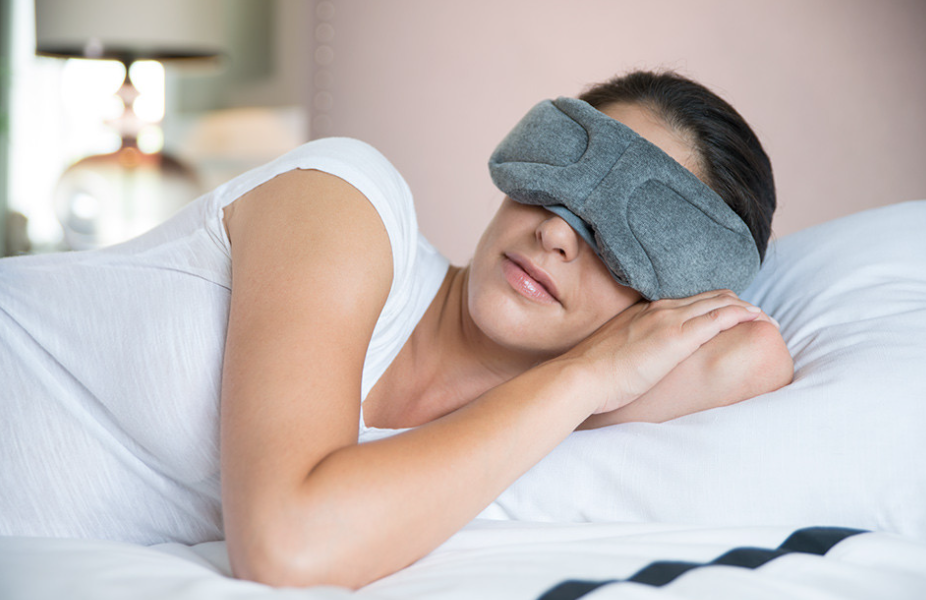

Sleep apnea is a treatable condition, but it requires prompt action. The longer you take to cure it, the worse it can get. It starts with problems like incomplete sleep, daytime sleepiness, low blood pressure or oxygen levels, and then progresses to worse cases. The worse cases can be headaches, depression, and heart disease, even a stroke. Therefore, it is important for you to visit a doctor or sleep specialist today to start the treatment:
Now before we begin, you need to understand that sleep apnea is quite common. Almost 25% (or 1 out of 4) of men around the age of 30 develop some form of sleep apnea. While it is rarer in women, it is still applicable to them. The treatment will depend on the severity of the sleep apnea. But, here's how it goes, stage-by-stage:
Weight loss will be the first step to treating obstructive sleep apnea. It is the most common type of sleep apnea. Usually, people with obesity tend to develop the problem. So, your sleep physician will direct you to lose weight.
You will also have to cut down on sedative-based medicines (like sleeping pills) or any sedatives in general. They will also ask you to limit alcohol intake or stop it for the treatment period. This option goes for all forms of sleep apnea.
They might also ask you to change your sleep cycle to see if that works.
Mild sleep apnea is usually curable with losing weight. But your sleeping position could also be the reason for obstructive sleep apnea. Certain positions, like sleeping on your chest, tend to cause the issue.
So, doctors might ask you to work on your sleeping positions. You might have to use special bedding rules or a mattress to fix it. If not, you can ask your partner to help you with it. If you don't have a partner, you can use something like an obstacle on your shirt or sleeping clothes that will prevent you from changing positions.
When your obstructive sleep apnea syndrome doesn't show any improvement after the first two treatments, the doctors might take another approach. There are especially moulded mouth braces that help with jaw restructuring and help keep your airway open.
These can help with lower jaw positioning and help upper airway muscles relax better while you sleep.
As you know, obstructive sleep apnoea is one of the sleep disorders when you stop breathing for some time while sleeping. It can be due to weak throat muscles or the muscles collapsing while you're asleep. The blocked airway could also be due to something in the nasal passages.
These mouthguards are designed to help move your lower jaw forward, but it is a gradual process.
A sleep medicine specialist won't prescribe you medicine if they know it could make the situation worse. However, one of the treatment options is to provide nasal sprays and other similar options to help you clear the passage for better breathing.
Another option might be oral appliances, like anti-snoring ones and inhalers, for better breathing and oxygen levels. These help with sleep-disordered breathing and a couple of these tools can even help with a sleep study.
CPAP Machine is a go-to treatment option that most people know. These are prescribed to anyone with moderate sleep apnea to severe obstructive sleep apnea. It is a great way to prevent sleep apnea symptoms. CPAP delivers an air pressure to help keep severe sleep apnea at bay.
If there is uncontrolled sleep apnea, they might prescribe a bilevel positive airway pressure machine (BIPAP or BiLevel Machine), which works with two air pressure settings.
Unfortunately, if you have central sleep apnea or your sleep apnea keeps getting worse, you're looking at surgical surgery. It could be a nasal surgery to remove anything that is blocking the airway there. Upper airway surgery is also quite common.
Sleep surgery is of a different type, even the ones that reshape or restructure your jaw if the breathing device fails to help you out.
Primarily, sleep apnea depends on excess weight, and your bed partner might be the first to see your sleep disorder with loud snoring and other issues. People with sleep apnea can get alarmed, but as long as you don't have treatment emergent central sleep apnea or other sleep disorders, CPAP will fix it.
Leave a comment